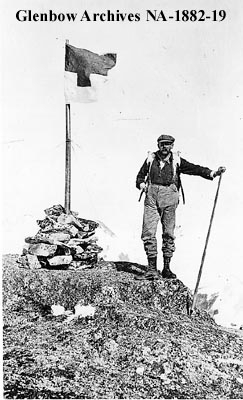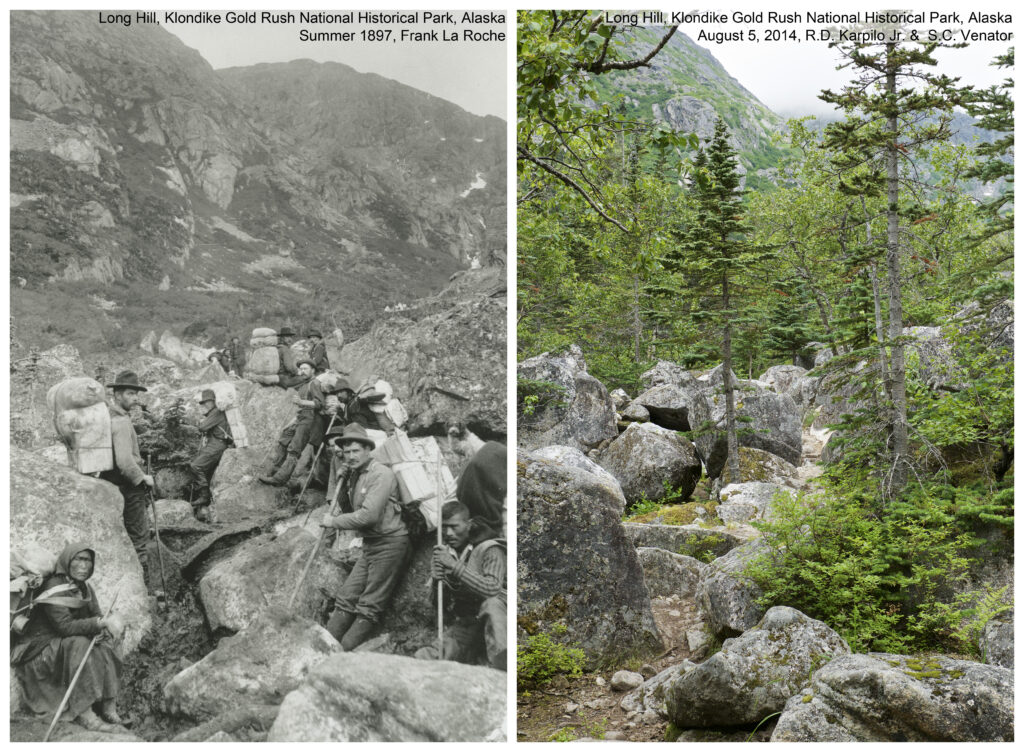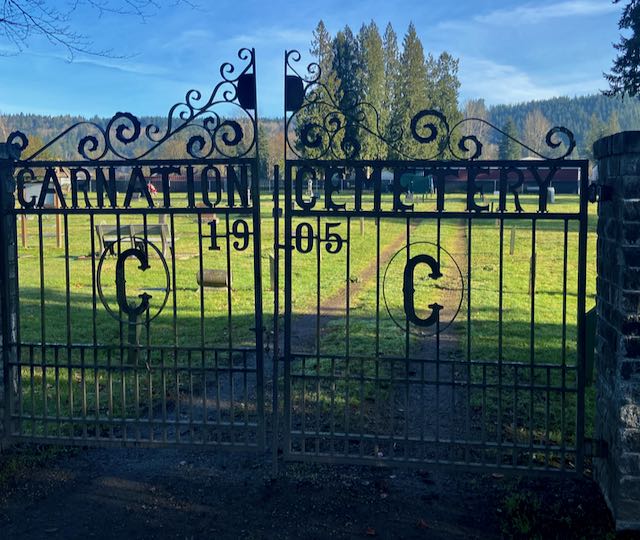by Dr. Laura Laffrado
Department of English
Western Washington University
In 1906, Cornell graduate student Oscar Von Engeln accompanied his professor on an expedition to Alaska funded by the U.S. Geological Survey. When the group arrived in Seattle, Von Engeln was immediately captivated by Benno S. Alexander, the man who would be their guide.
Von Engeln described Alexander as “a backwoodsman from the wilds of Washington State” who was also “a poet, philosopher, lover of adventure, and—well, a make-up one can’t describe.” Among the things that impressed him were that Alexander had studied in Germany, that he chanted Greek while rowing a boat, and that he’d once led an Italian duke to the top of Mt. St. Elias, on the border of Alaska and the Yukon.
Well-known in literary and exploration circles at the turn of the 20th century, Alexander was a prolific writer of poetry and prose in both English and German. He was also a legendary guide to the far north. What remains of him in the historical record reveals an accomplished and energetic Northwesterner passionately engaged with literature and travel.
Born in 1862, Alexander grew up in Germany, graduated from the University of Berlin, and immigrated to California in 1888. Like thousands of others, he gravitated to Seattle at the end of the century when the Klondike Gold Rush began. There, he edited the German-language newspaper Washington Presse, tutored students in his native tongue, and showed himself to be a man of strong opinions.
When Alexander spoke at a 1900 local Democratic party meeting about the Boer War and U. S. expansion under President William McKinley, a newspaper reporter described his talk this way: “Mr. Alexander aroused more enthusiasm than any of the other speakers. His utterances were intemperate, however. He said, for example, ‘The attitude and the policy of the administration in the Philippines is the most damnable crime of modern times.’”

As a guide, Alexander was highly sought after for prominent scientific expeditions to Alaska, the Arctic, Siberia, and the Yukon. Both Mount Alexander and the Alexander Glacier in Alaska’s Saint Elias mountains are named in his honor.
Alexander based much of his writing on his wilderness adventures, a fact reflected in the titles of poems such as “A Camp on the Donjek,” “On a Mastodon Hunt on the Yukon,” and “White Horse Rapids,” and essays such as “The Lure of the Lone Trail,” “The Sealers: The Life Story of a Prodigal Son,” and “In the Wonder-Realm of Alaska’s Glaciers.” Among the publications he wrote for were Alaska-Yukon Magazine, Hunter-Trader-Trapper, Outdoor Life, the Seattle Times and, in German, Die Welt, and Über Land und Meer.
Alexander’s writings reveled in the dangers and exhilaration of traversing mountains, waters, and untamed lands. In this excerpt from his poem “The Yukon Trail Once More,” which appeared in Hunter-Trader-Trapper in 1910, he vividly recalls the hazards of his northern travels:
Gold or Death! The Canyon hissed disaster;
Our canoe raved through the pillared gloom,
And our heartbeats hammered fast and faster
As we barely missed the rock of doom.
Gold or Death! The White Horse, manes a-flutter,
Bore us madly passed the boulders dread,
But our grief no human tongue could utter,
When we called the rolls and mourned our dead.

Photographs of Alexander depict his robust enjoyment of such perils. In one from a 1908 boundary-marking expedition in Alaska, he stands tall on a mountain peak, holding a long hiking stick beside a flag supported by piled rocks. Except for a mountain peak in the distance, the rest of the photograph is empty. Its focus is a hardy man thriving in his element.
When he turned to prose, Alexander was often more introspective as he contemplated the magnetic pull of the wild. In “The Lure of the Lone Trail,” for example, which appeared in Outdoor Life: A Magazine of the West in 1911, he identified himself as one of “a race of men that don’t fit in; they are always tired of things that be: they want the strange and the new and they don’t know how to rest.”
He realized, he wrote, that guides like him would never grow rich (unless they struck gold) but there were “other glorious compensations. In the glowing health of outdoor life, trail-hardened and the savage strength of brute in every thew, we have felt the throbbing pulse of life primeval and lain close to the loving heart of our mother, the earth.”

On occasion, Alexander turned his attention to the subject of being an author and found in it a pursuit not unlike his travels, one that demanded profound exertions in an effort to reach a worthy goal. In his poem “The Poet,” for example, published in the Seattle Daily Times in 1897, he writes:
Upon the height of life the poet stands
Like some lone tree upon a towering cliff—
A tree that wind harps on its branches
bears,
Exposed to all the fury of the storms;
Oft tremblingly before their blast it bends
And shakes in agony.
Then from its harps
Resound unearthly tunes, seraphic songs
Borne by the pinions of the wind afar.
As his journey with Alexander progressed, Von Engeln continued to write about the guide in his journal, noting that Alexander had “two dueling scars” and had “knocked around Alaska for ten years, been in all the rushes but has found no gold.” He described Alexander as six feet two inches tall, “somewhat uncouth as to clothes,” with “a quite imposing mien.”
A photograph Von Engeln took of the guide reinforces this description. In it, Alexander stands on board the Santa Ana with six men from the expedition around him, laughing and leaning toward him. Although all of them are wearing suits, Alexander is dressed more casually than the others and his posture is more relaxed. Von Englen has captured him in mid-story, fascinating these elite Eastern academics with charismatic retellings of his thrilling adventures.

Among the many things that impressed Von Engeln were the writers Alexander had read—Poe, Byron, Kipling, and Heinrich Heine among them. The guide was also familiar with local authors like Robert Service and Ella Higginson, who was a friend. He read these writers’ books, Von Engeln wrote, while wintering in a “cabin fitted with many blankets and couches, with plenty of firewood, a good lamp, and oceans of reading, while the storm howled outside.”
When he wasn’t in the far north, Alexander lived in what was then the rough country outside of Seattle, in the tiny settlement of Tolt, where he died of heart failure on July 19, 1928, at the age of 66 or 67. An obituary in the Seattle Star newspaper described him as the “hero of a hundred Arctic adventures.” The Seattle Times noted that he was survived only by a brother, Herman, in Germany. Despite his many writings, his valuable work as a wilderness guide, and his powerful presence, Alexander was buried in an unmarked grave and his accomplishments were soon forgotten.

(Note: In late 2024, my intrepid student Megan Shamon located Benno Alexander unmarked grave in what is now the Carnation Cemetery (formerly the Tolt Cemetery) in Carnation, WA. It’s on the right side near marker 7: a large patch of grass between the gravestones of Raymond A. Palmer and W.P. Willhite. Thank you, Megan!)
Dr. Laura Fernandes Laffrado is an award-winning Professor of English at Western Washington University. She has published widely on American literature in journals such as a/b: Auto/Biography Studies; ESQ; Legacy: A Journal of American Women Writers; Literature in the Early Republic; Nathaniel Hawthorne Review; Studies in Eighteenth-Century Culture; and many other journals and collections. Among her books are Uncommon Women: Gender and Representation in Nineteenth-Century US Women’s Writing and her most recent book, Selected Writings of Ella Higginson: Inventing Pacific Northwest Literature, which received the Society for the Study of American Women Writers 2018 Edition Award. She is currently at work on a biography of Pacific Northwest writer Ella Rhoads Higginson.
~ ~ ~ ~ ~
You’ll find more information related to Benno Alexander and his times on these sites:
Snoqualmie Tribe Ancestral Lands Movement
Links to a selection of Alexander’s writings:
“A Camp on the Donjek.” Hunter-Trader-Trapper, vol. 20, 1910, p. 65
“When Sitka Sleeps.” The Coast, vol. 155-56, 1908, p. 46
“The Yukon Trail Once More.” Hunter-Trader-Trapper, vol. 20. 1910, p. 40
“Alaska’s Glacial Wonderland.” Outdoor Life: A Magazine of the West, vol. 25, 1910, pp. 555-65

Leave a Reply